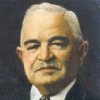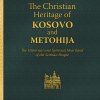Stana Katic (born April 26, 1978) is a Canadian film and television actress. She is best known for her portrayal of Detective Kate Beckett on the popular ABC series Castle.
Katic was born in Hamilton, Ontario, Canada, to Serbian parents named Peter and Rada Katić. In describing her ethnicity, she has stated her parents are Serbs. They emigrated from Yugoslavia. Her father is from Vrlika, and her mother is from the surrounding area of Sinj. Katic later moved with her family to Aurora, Illinois. She spent the following years moving back and forth between Canada and the United States.
.After graduating from West Aurora High School in 1996, she studied acting at Chicago's Goodman School of Drama. She has four brothers and one sister.
Katic played the character of Hana Gitelman in Heroes, Collette Stenger in 24 's season 5, and Jenny in the film Feast of Love starring Morgan Freeman. She also played Morgenstern in Frank Miller's film The Spirit, Corrine Veneau in the Bond movie Quantum of Solace (though she was originally up for the role of Strawberry Fields in the film), and Simone Renoir in the third installment of The Librarian franchise, The Librarian: Curse of the Judas Chalice.
In August 2008, ABC announced acquisition of the television series Castle, starring Katic as Kate Beckett and Nathan Fillion as Richard Castle.
In 2008, Katic established her own production company, Sine Timore Productions, which is Latin for "without fear."
In the summer of 2010 Katic filmed For Lovers Only with the Polish brothers in France and The Double with Richard Gere.
On January 28, 2012, she was a presenter at the 64th Annual Directors Guild of America Awards ceremony. She was the recipient of the PRISM Award for Performance in a Drama Episode at the 16th Annual PRISM Awards for her portrayal of suffering from Post Traumatic Stress Disorder in the fourth season episode "Killshot" (4x09). Katic was nominated for the 39th People's Choice Awards in the Favorite Dramatic TV Actress category.
From Wikipedia





